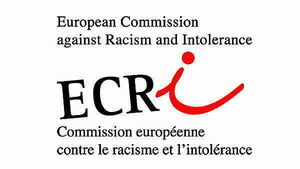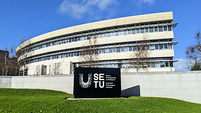Human rights monitoring body calls on Ireland to introduce hate speech laws

Seán McCárthaigh
An international human rights monitoring body has called on Ireland to introduce new legislative measures to punish hate speech as a matter of priority and to ensure expressions of hate speech are “punishable by effective, proportionate and dissuasive sanctions".
The Council of Europe’s anti-racism body – the European Commission against Racism and Intolerance (ECRI) – claimed the measure was necessary as hate speech remains widespread in the Republic.
The ECRI also expressed concern about “the stark decline” in the mental health of LBGTI+ people and the fact that so-called conversion practices and medically unnecessary and non-consensual surgeries performed on intersex children were still not prohibited in Ireland.
It also recommended improving the availability of accommodation for people seeking or granted international protection including measures to ensure that LGBTI beneficiaries and applicants have access to safe accommodation and in which they will not experience discrimination.
Report
The ECRI made a total of 15 recommendations in a new report monitoring Ireland’s progress in its legal and institutional anti-discrimination frameworks as well as policies to protect vulnerable groups such as Roma and Travellers whom it claimed are continuing to face high levels of racism and discrimination.
The ECRI acknowledged that progress had been made and good practices have been developed in a number of areas since its previous monitoring report in 2020 including a new National Action Plan Against Racism and the preparation of a draft National LGBTQI+ Inclusion Strategy.
It also welcomed the adoption of important new measures concerning Travellers and Roma.
In particular, it noted the efforts put in place to support staff in fostering inclusiveness in schools and implementing an action plan on bullying.
Despite such positive developments, the ECRI said there were also some issues which give rise to concern.
They include the failure for the allocation of new mandates and functions to the Irish Human Rights and Equality Commission to be accompanied by adequate human and financial resources so that it negatively impacted on its effectiveness.
The ECRI said hate speech including the reaction of politicians to events in local communities resulted in ill-informed responses which fuelled hatred and escalated tensions further.
Discriminatory content
It observed that most discriminatory content was motivated by “anti-migrant, anti- Black/African, anti-refugee/asylum seeker sentiments".
The ECRI recommended that the Irish authorities should take steps to specify and clearly define hate speech in legislation and to ensure expressions of hate speech are “punishable by effective, proportionate and dissuasive sanctions".
It also urged the Government to introduce legislation that clearly prohibits racial profiling by gardaí.
In addition, it said the authorities in Ireland should step up efforts to encourage public figures including politicians and religious, economic and community leaders to take a prompt and firm public stance against the expression of racist and LGBTI-phobic hate speech.
Political parties
The ECRI said all political parties should be encouraged to sign the Charter of European Political Parties for a Non-Racist Society.
The report claimed there is still a lack of a breakdown of data on hate crime and a lack of systematic recording of all stages of investigation, prosecution, conviction and sentencing for such offences.
The ECRI said harassment and hate speech against LGBTI persons remained a reality in Ireland “with a notable deterioration towards transgender and intersex communities.”
The ECRI noted that many LGBTI people felt unsafe about expressing their sexual orientation or gender identity in public.
The Commission recommended that a comprehensive bill should be brought before the Oireachtas that expressly acknowledges the right of intersex persons to bodily integrity and which banned any unnecessary “sex-normalising” surgery and other non-therapeutic treatments until such time as the intersex child is able to participate in the decision based on the principle of free and informed consent.
The ECRI expressed concern that its findings indicated that Travellers and Roma continue to face high levels of racism and discrimination across all areas of life including education, health, employment and housing.





